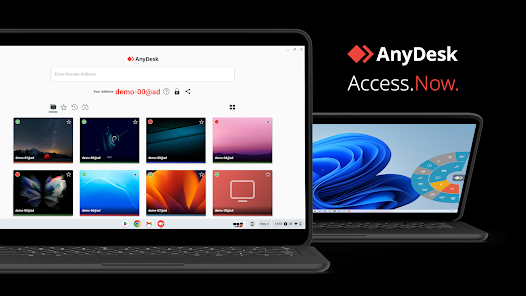Expert Logic Pro Help from Audio Support
Audio Support provides independent, one-to-one technical help for Logic Pro users worldwide — solving crashes, latency, and workflow problems quickly and clearly.
Founded by Paul Andrews, a technician and educator with over 20 years’ experience in music technology, the service helps musicians and producers get their systems running smoothly so they can focus on making music.
This case study article is part of our Logic Pro Support series, sharing real client stories and practical fixes discovered through remote troubleshooting.
Learn more about Logic Pro Support
Case Study
Logic Pro 10.7.7 Crashing – Fixing Plug-in Conflicts on macOS Monterey
The Client’s Challenge
Joe, a professional composer, contacted Audio Support after Logic Pro began crashing repeatedly. His system included:
- MacBook Pro (M1, 2020)
- macOS Monterey
- Logic Pro 10.7.7
- Toontrack EZdrummer 3 and other third-party plug-ins
Each time Joe opened a project and clicked the track containing EZdrummer 3, Logic Pro crashed immediately. Sometimes a crash report appeared; sometimes it didn’t.
He also described a visual glitch where Logic would play back audio but the playhead stayed frozen — frustrating and unpredictable behaviour that made composing impossible.
Session Setup
We scheduled a 60-minute remote session via AnyDesk and WhatsApp Voice. While I couldn’t connect directly to the physical hardware, the remote session allowed me to understand his existing signal flow—Mic to Shure Receiver to Mixer—and then use the screen-sharing to research suitable equipment options together in real-time.

Diagnosis
At first glance, his setup appeared consistent: an M1 Mac running macOS Monterey with Logic Pro 10.7.7 — all released around 2020–2021.
However, EZdrummer 3 was a newer release designed for later versions of Logic Pro and macOS. This created subtle incompatibilities between his host software, operating system, and updated plug-ins.
I confirmed via Activity Monitor that Logic Pro was running natively, not under Rosetta, so Intel translation wasn’t causing the problem.
Re-creating the crash made the cause clear. Logic Pro failed whenever it tried to activate EZdrummer 3 on project load.
Inside File > Project Settings > General, Joe had enabled:
“Load plug-ins only when needed.”
This setting deactivates unused plug-ins at startup and reloads them when a track is selected.
In Joe’s session, EZdrummer 3 wasn’t truly “unused” — it already contained MIDI data. When Logic attempted to reload the instrument mid-session, the DAW crashed instantly.
After disabling this setting, saving a new version of the project, and reopening it, Logic Pro loaded normally. Selecting the EZdrummer 3 track no longer caused a crash.
The Fix
With the immediate crashing resolved, we investigated the playback glitch.
That issue wasn’t related to any specific plug-in; it pointed to graphics and timing behaviour that Apple addressed in later versions of Logic Pro and macOS.
I recommended Joe update his system to ensure full compatibility:
- macOS → Sonoma (or at least Ventura)
- Logic Pro → 11.x series
While it’s wise to be cautious with updates, Apple Silicon machines like Joe’s M1 handle recent releases very reliably. The most significant compatibility risks I see today involve newer software on older Intel Macs, not the other way around.
Joe followed my advice, updated to macOS Sonoma and Logic Pro 11.2.3, and later emailed to confirm:
“Everything’s working beautifully — no crashes, no glitches, just smooth playback. Thank you for your help and reassurance.”
Reflection
This case highlights how Logic Pro stability depends on harmony between macOS, the DAW, and third-party plug-ins. Joe’s hesitation to upgrade was sensible — many professionals delay updates to protect active projects — but sometimes staying too far behind introduces the very instability you’re trying to avoid.
Knowing when it’s safe to update, especially on Apple Silicon, comes from real-world experience. That’s what Audio Support offers: practical, human troubleshooting informed by years of hands-on audio engineering.
By combining diagnostic insight with empathy for the creative process, we find not just quick fixes but sustainable solutions.
Closing Thoughts
When Logic Pro starts crashing or acting erratically, it’s rarely a single bug. It’s the interaction of versions, drivers, and plug-ins — the delicate ecosystem of modern production.
At Audio Support, I provide one-to-one remote troubleshooting for Logic Pro users worldwide, helping composers and producers eliminate technical roadblocks so they can focus on making music.
Need Help with Logic Pro?
If you’re experiencing similar issues with Logic Pro — slow sessions, plugin errors, or routing problems — Audio Support can help.
Book a live one-to-one session with Paul Andrews for clear, practical technical help delivered remotely anywhere in the world.
Audio Support is an independent service and is not affiliated with Apple or any other manufacturer.
Recent Reviews
Let’s Get Your System Running Smoothly.
No automated tickets, no waiting queues — just one-to-one help from an experienced music technology specialist. I’ll connect to your system remotely, identify the issue, and guide you through the fix.
More Case Studies
Recent problems solved for real clients.
Preparing for a Studio Hardware Installation
14 December 2025

Client’s Question
What cables do I need to connect my hardware synths to my mixer?
Session Result
Equipment audited, cable inventory confirmed, site visit planned.
Read Full Case Study Report: Preparing for a Studio Hardware InstallationMono Microphone Only in Left Speaker Fix in Logic Pro
14 December 2025

Client’s Question
Why is my mono mic input only coming out of the left speaker in Logic Pro?
Session Result
Mono input successfully centred by changing Logic Pro track format from Stereo to Mono.
Read Full Case Study Report: Mono Microphone Only in Left Speaker Fix in Logic ProManaging Native Instruments Komplete Libraries in Kontakt
12 December 2025

Client’s Question
How do I hide unwanted libraries in the Kontakt side pane?
Session Result
Unused libraries hidden, visual clutter removed.
Read Full Case Study Report: Managing Native Instruments Komplete Libraries in KontaktUsing Professional Studio Microphones with WhatsApp
12 December 2025

Client’s Question
How do I use my Focusrite interface and XLR mic with WhatsApp?
Session Result
WhatsApp Desktop app configured to route audio through Focusrite interface.
Read Full Case Study Report: Using Professional Studio Microphones with WhatsApp
